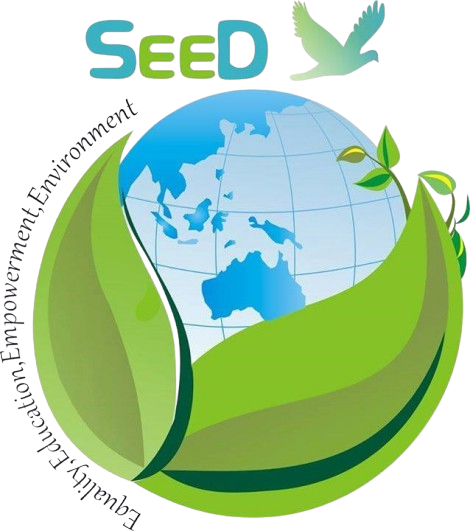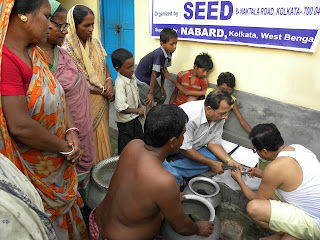The tribal communities of India—among the country’s oldest inhabitants—represent a rich mosaic of cultures, languages and wisdom. Yet, they continue to be one of the most marginalized groups in terms of socio-economic development.
Among them, the Munda tribe, concentrated in parts of West Bengal, faces distinct challenges in their pursuit of dignified living. Based on decades of field engagement, SEED’s work with the Munda community in Kumarpukuria Mouza, Sonarpur Block (South 24 Parganas), offers powerful lessons on how participatory, holistic development can foster resilience in tribal areas.
Challenges Rooted in Exclusion
Despite forming nearly 7.8% of West Bengal’s tribal population, the Munda tribe remains largely cut off from mainstream development. Their ancestral occupation as hunters and gatherers has evolved into marginal agriculture and wage labor, but landlessness, poverty, and lack of formal rights continue to define their socio-economic profile.
In Kumarpukuria Mouza—comprising the villages of Jhinukpara, Kumarpukuria and Nimtala—more than 90% of the population belongs to Scheduled Tribes. The majority are marginal farmers or landless laborers, with scarce employment opportunities and seasonal incomes.
Education and healthcare infrastructure are almost non-existent locally. The nearest Primary Health Centre is 10 km away and there is no school within the village itself. Tribal children, caught between poverty and parental illiteracy, often drop out or are forced into labor.
Compounding this, malnutrition among children is severe—reflecting broader trends from the National Family Health Survey which highlights that nearly 60% of tribal children under five are underweight. Maternal undernutrition, poor sanitation and lack of awareness exacerbate this crisis.
SEED’s Integrated Approach: from Livelihoods to Nutrition Security
At SEED, we believe that sustainable change begins with livelihood security. Without improving the economic condition of families, other interventions in education or health cannot take root.
With funding supported from NABARD. our first step was to form Joint Liability Groups (JLGs) among Munda households—creating solidarity-based groups for shared learning and mutual support. Recognizing the rich aquatic resources of the region, we introduced indigenous fish farming to 500 using induced breeding and bamboo pen culture techniques.
Through training in the cultivation of high-demand species like Desi Magur (Clarias batrachus), we helped tribal families tap into viable market opportunities. Today, Munda women and youth are independently managing these initiatives—enhancing both their income and confidence.
In parallel, we introduced animal husbandry to 800 households as an additional livelihood pathway. Ducks, goats, sheep and pigs were distributed, along with training on shelter management, disease prevention and environmental hygiene.
Addressing Nutrition & Health through Community Education
Recognizing the deep nutrition and health challenges faced by Munda children and mothers, SEED initiated targeted interventions in maternal health and family nutrition.
Through home-based counseling, health awareness sessions, and the promotion of kitchen gardens, we empowered around 1200 Munda women to take charge of their family’s dietary diversity. Even simple innovations—like growing vegetables in old utensils, clay pots and tins—became practical solutions for improved nutrition.
We also promoted safe motherhood practices—encouraging antenatal care, institutional deliveries and child health checkups—while gently challenging harmful traditional beliefs around health and nutrition.
To ensure cultural acceptance, we integrated folk-based communication tools, using songs, skits and local storytelling to convey important messages in ways that echo with tribal sensibilities.
A Small Step, a Long Journey Ahead
Transforming entrenched poverty and marginalization is a slow process. Yet, the early results from Kumarpukuria demonstrate the power of community-led, culturally sensitive development.
Tribal women now speak with confidence about their earnings, their children’s schooling, and their aspirations. Children who once dropped out are returning to school with better nutrition and family support. New conversations are emerging about land rights, literacy, and inclusive governance.
At SEED, we see this as just the beginning. Our goal is to replicate and scale this integrated model of livelihoods, nutrition, education and empowerment to other tribal belts across West Bengal.









